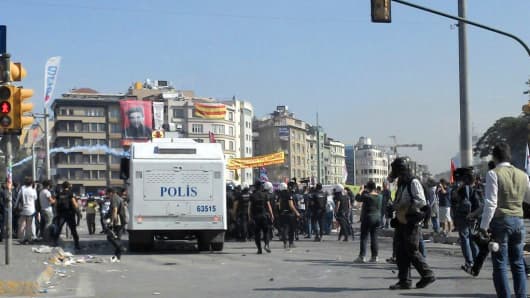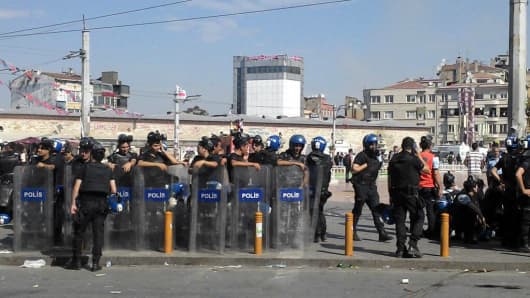Turkish riot police fired water cannons and tear gas at anti-government protesters in Istanbul's Taksim Square on Tuesday, but the country's prime minister remained defiant.
Bulldozers removed barricades and police used water cannons against demonstrators, who were armed with rocks and fireworks. Skirmishes with the police continued into Tuesday evening, as hundreds of protesters remained in the square.
However, Prime Minister Tayyip Erdogan continued to condemn the protests in a televised speech.
"They say the prime minister is rough. So what was going to happen? Were we going to kneel down in front of these (people)?" he said. "If you call this roughness, I'm sorry, but this Tayyip Erdogan."
He added that the protests were a deliberate attempt to damage the country's economy and image, and accused speculators of profiting from Turkey's unrest.
"The increase in interest rates, the fall in the stock markets, the deterioration in the investment environment, the intimidation of investors — the efforts to distort Turkey's image have been put in place as a systematic project," he said.
Erdogan has also dismissed protesters as "capulcular", or riff-raff.
(Read More: Turkish PM Threatens to 'Choke' Foreign Speculators)
The protests and the government's reaction has sparked anxiety among foreign investors. So far, the protests have lasted for 12 days, with three people killed and about 5,000 injured.
On Tuesday, the Turkish lira weakened to 1.8955 against the dollar, its lowest level since December 2011, and down from 1.8706 on Friday. However, the lira strengthened slightly after the Turkish central bank said it would implement short-term monetary tightening measures to counter foreign exchange market volatility.




